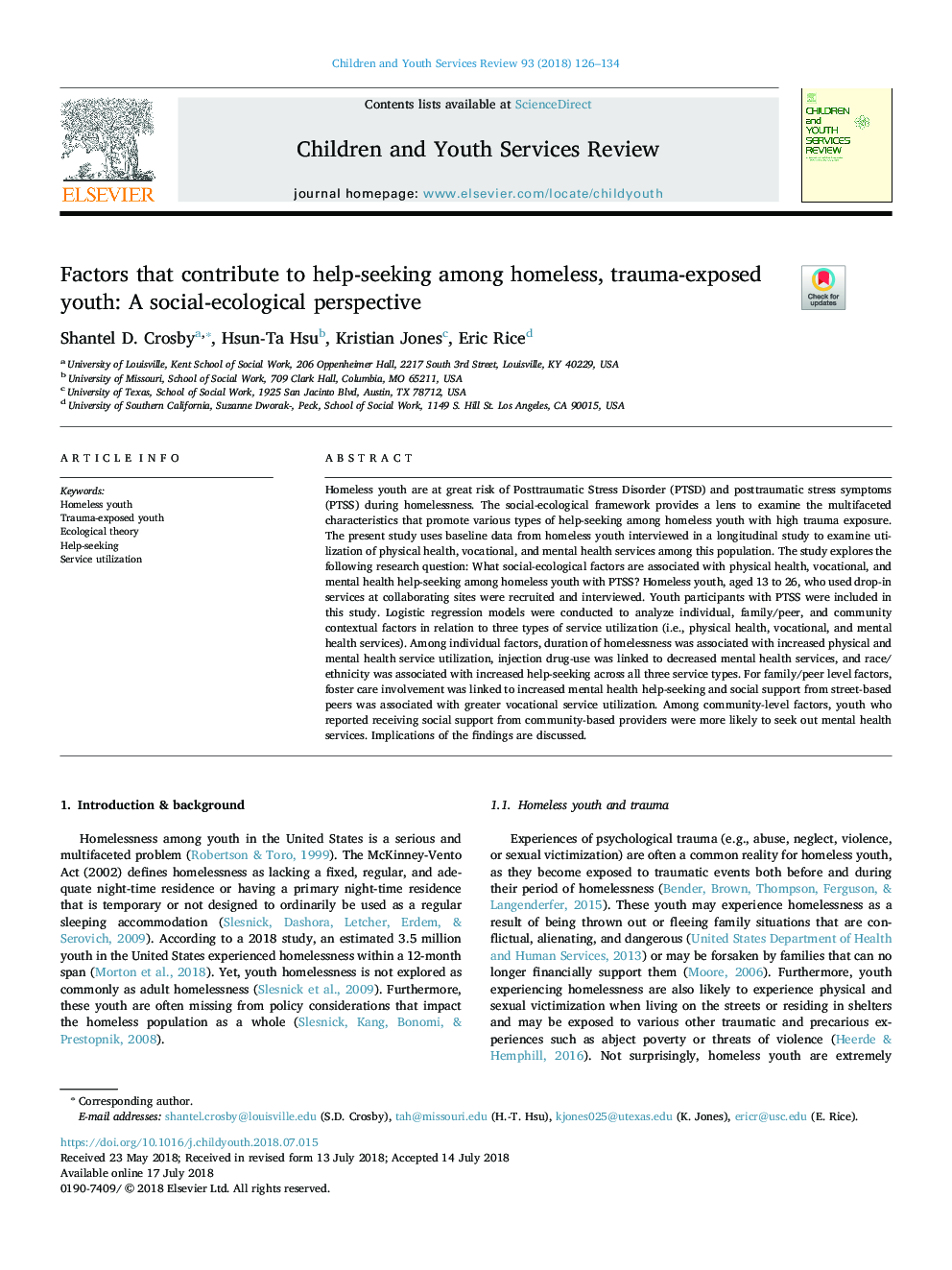| Article ID | Journal | Published Year | Pages | File Type |
|---|---|---|---|---|
| 6832790 | Children and Youth Services Review | 2018 | 9 Pages |
Abstract
Homeless youth are at great risk of Posttraumatic Stress Disorder (PTSD) and posttraumatic stress symptoms (PTSS) during homelessness. The social-ecological framework provides a lens to examine the multifaceted characteristics that promote various types of help-seeking among homeless youth with high trauma exposure. The present study uses baseline data from homeless youth interviewed in a longitudinal study to examine utilization of physical health, vocational, and mental health services among this population. The study explores the following research question: What social-ecological factors are associated with physical health, vocational, and mental health help-seeking among homeless youth with PTSS? Homeless youth, aged 13 to 26, who used drop-in services at collaborating sites were recruited and interviewed. Youth participants with PTSS were included in this study. Logistic regression models were conducted to analyze individual, family/peer, and community contextual factors in relation to three types of service utilization (i.e., physical health, vocational, and mental health services). Among individual factors, duration of homelessness was associated with increased physical and mental health service utilization, injection drug-use was linked to decreased mental health services, and race/ethnicity was associated with increased help-seeking across all three service types. For family/peer level factors, foster care involvement was linked to increased mental health help-seeking and social support from street-based peers was associated with greater vocational service utilization. Among community-level factors, youth who reported receiving social support from community-based providers were more likely to seek out mental health services. Implications of the findings are discussed.
Related Topics
Health Sciences
Medicine and Dentistry
Perinatology, Pediatrics and Child Health
Authors
Shantel D. Crosby, Hsun-Ta Hsu, Kristian Jones, Eric Rice,
